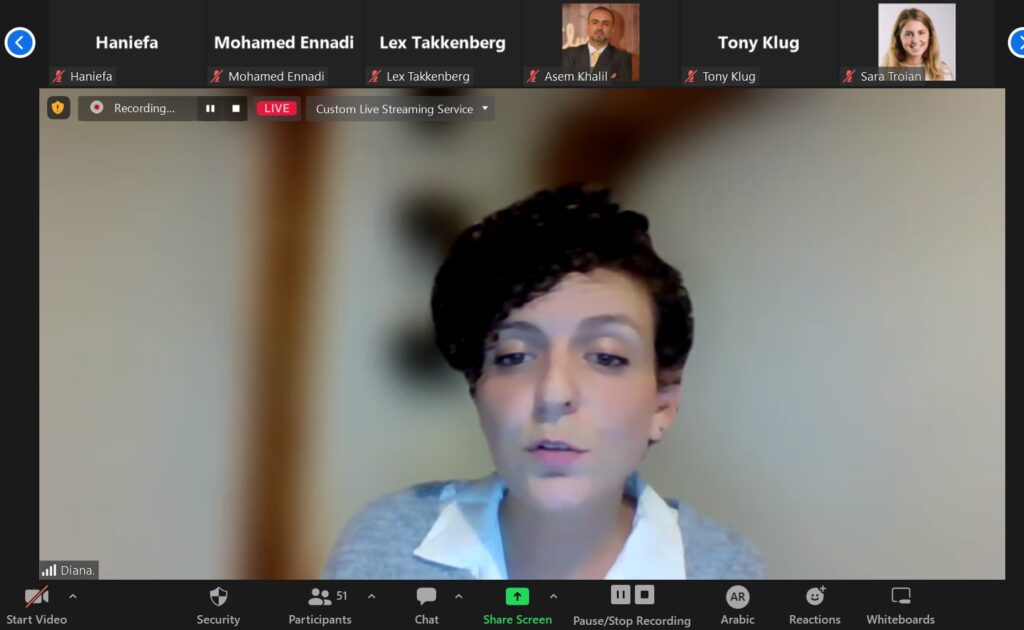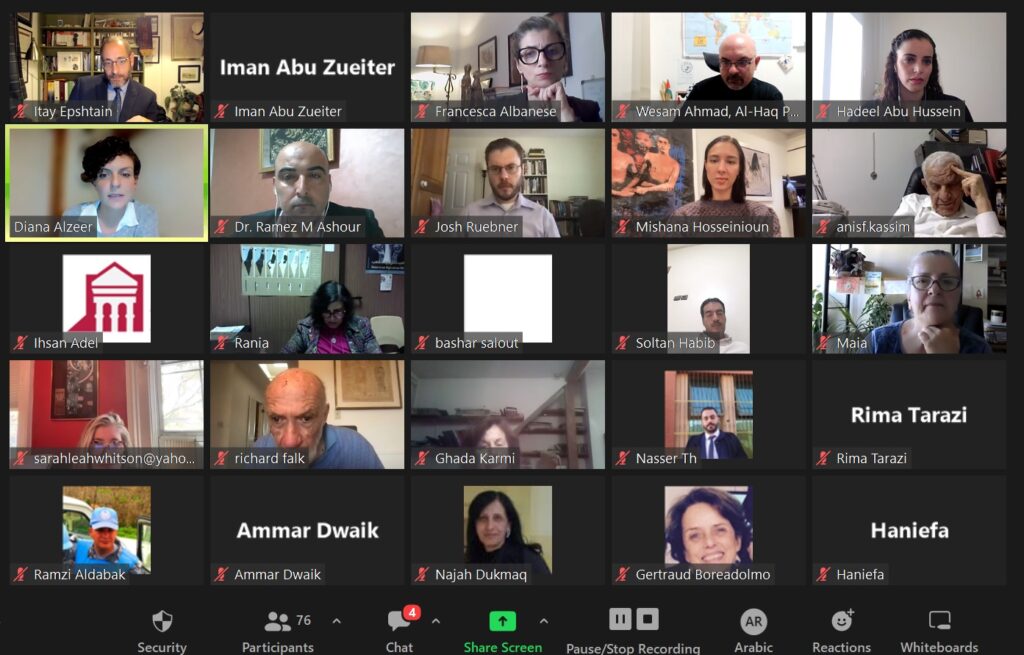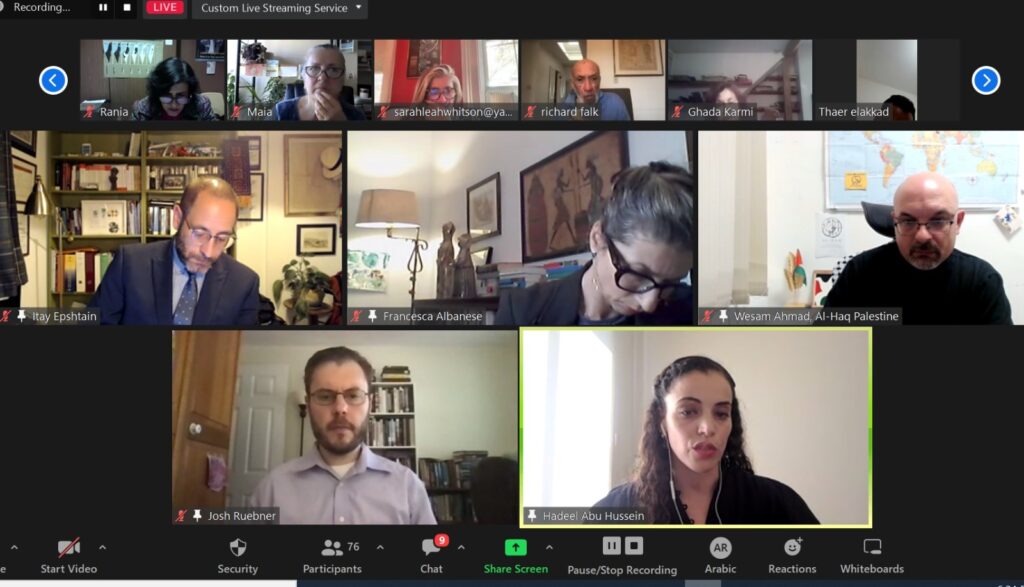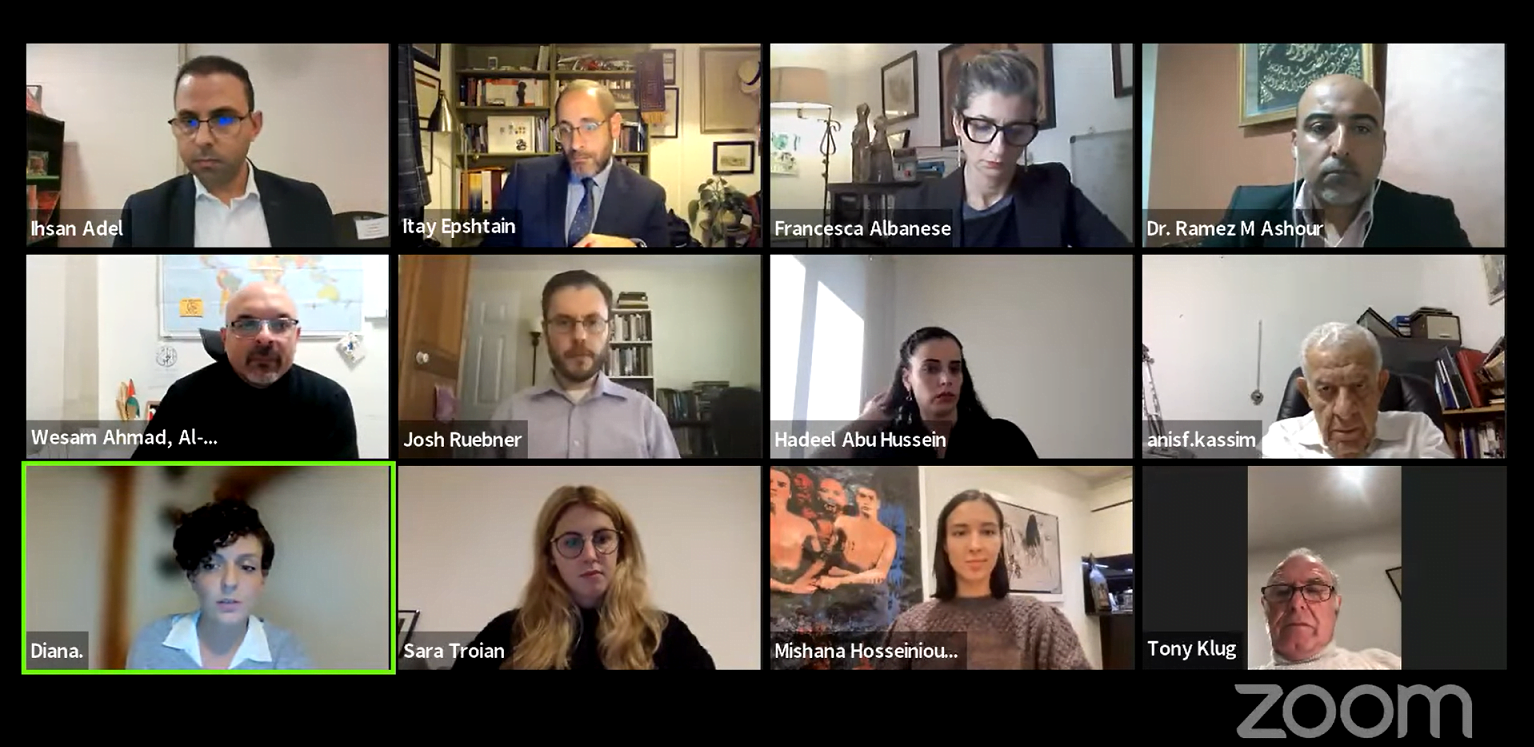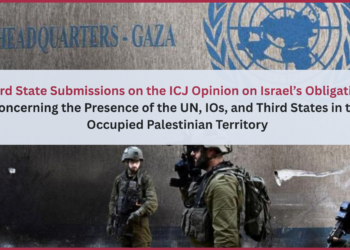With the UN SR on Palestine and International Experts: Jurists for Palestine Forum Discusses the Paradigm Shift Needed to Dismantle Colonialism and Enforce Self-Determination
Law for Palestine in partnership with the Arab Renaissance for Democracy and Development (ARDD) have organized, as part of the of “Jurists for Palestine Forum” monthly webinars, a webinar titled “UN SR Milestone Report on Palestine: Resuming Rights-Based Discourse on Palestine”.
The webinar, which is the sixth in the second season of the Jurists for Palestine Forum, came to address the milestone report of the UN SR on Palestine and understanding its implications across different dimensions including the Palestinians, the USA, and the global civil society and the international community as a whole.
The webinar was held on November 7th via Zoom and hosted the UN Special Rapporteur on Palestine, Francesca Albanese, together with four international experts on the question of Palestine namely Itay Epshtain, Special Advisor at the Norwegian Refugee Council; Hadeel Abu Hussein, Lawyer and Research Fellow at Erasmus University; Wesam Ahmad, Head of Al-Haq Center for Applied IL; and Josh Ruebner, Author and Expert in US-Policy (Palestine-Israel).
The webinar was moderated by Diana Alzeer, Vice-President at FIDH and the Head of Strategic Outreach at Al-Haq, and was attended by 80 senior and junior intellectuals on Palestine, including Prof. Richard Falk, the Former UN Special Rapporteurs on the occupied Palestinian territories, Luisa Morgantini, the former Vice Chair of the European Parliament Delegation to Palestine, and Ammar Dwaik, the Director General of the Palestinian Independent Commission for Human Rights.
The Right to Self-Determination must be the pre-condition to negotiate anything else between the Israeli and the Palestinians
In her intervention, the UN Special Rapporteur on Palestine stressed out the necessity of correctly understanding the inalienable right of the Palestinians to self-determination and to function through the lens of this right. “It is [the right to self-determination for Palestinians] not only unrealized but also strongly misunderstood” stated Albanese despite being foundational and the right of all rights. Therefore, she decided to investigate this right at the very beginning of her mandate.
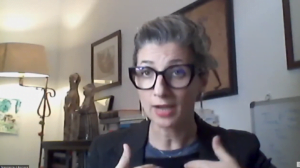 Albanese argued that “the violation of this right is inherent to Israeli occupation and gives the occupation the whole-mark of settler-colonialism”. She also criticized the international approach to the Palestinian cause as of focusing on manifestations of the occupation rather than establishing its illegality which resulted in missing the bigger picture.
Albanese argued that “the violation of this right is inherent to Israeli occupation and gives the occupation the whole-mark of settler-colonialism”. She also criticized the international approach to the Palestinian cause as of focusing on manifestations of the occupation rather than establishing its illegality which resulted in missing the bigger picture.
The Special Rapporteur concluded by explaining the fallacy of assuming that Palestinians should wait the end of negotiations to exercise their right to self-determination. The opposite what should happen according to Albanese. “Freedom will bring peace, but first and foremost the occupation must be dismantled and the right to self-determination should be respected” stated Albanese.
Palestine is a microcosm of global injustice
On his side, Wesam Ahmad, tackled the report from the Palestinian perspective stating that it was very well received as a long-waited correction to the description of their suffer for decades. Wesam emphasized on that “the idea that colonialism has come to an end is something that we need to overcome and address the reality that colonial practices continue in several manifestations, and we see it is happening within the Palestinian context in a classical settler-colonial sense”.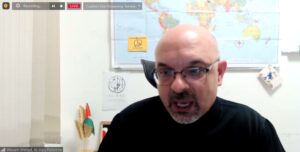
The Head of Al-Haq Center for Applied IL continued his intervention by explaining the importance of the paradigm shift request provided by the report, for altering the way international community and activists understand and approach the Question of Palestine as an issue of apartheid and colonialism. As well as the importance of cooperation among all activists and international bodies in order to eradicate colonialism. “Palestine is a microcosm of global injustice and in part this needs things to be done from our part as Palestinians but also human rights activists as a whole need to make the connection between the challenges that we all face together and to address this issue of colonialism in its contemporary manifestation in different forms” stated Wesam.
The report widens the space for scholars to challenge international law limitations and put Palestinian lives back at the center
The international scholar, Hadeel Abu Hussein, provided a thorough analysis of the report and its impact on scholars, especially at the global south. She considered the report to be a milestone in the way it digs deeply into the roots of the Palestinian cause and into the origins of the Zionism movement.
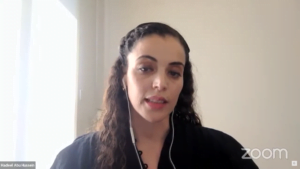 Abu Hussein stressed out that despite intentionally excluding Palestinians living in Israel and in diaspora from the report due to the legal constraints of the SR’s mandate, the premises of the report are related to all Palestinians notwithstanding their geographic location or legal status. Since it tackles the question of self-determination which is concerning all Palestinians as a people. Thus, “it has an impact over all Palestinian people living under or affected by the settler-colonial regime” stated Abu Hussein.
Abu Hussein stressed out that despite intentionally excluding Palestinians living in Israel and in diaspora from the report due to the legal constraints of the SR’s mandate, the premises of the report are related to all Palestinians notwithstanding their geographic location or legal status. Since it tackles the question of self-determination which is concerning all Palestinians as a people. Thus, “it has an impact over all Palestinian people living under or affected by the settler-colonial regime” stated Abu Hussein.
The importance of the report also rests in the way it emphasizes the validity and importance of using the apartheid framework alongside with illegal occupation which is crucial to understand and hence end the Israeli domination on Palestine, according to Abu Hussein.
As a scholar, Abu Hussein believes that the report provided them with a broader integrated framework to understand the question of Palestine bringing to the surface the issue of colonialization and opened a new door for scholars to view the problem from the lens of anti-colonial movement. Additionally, the report helps scholars to bring back the lives of Palestinians and their suffer at the heart of the debate and challenge the power dynamics at play affecting the functionality of international law.
The UN SR Report plays an important role in shifting the US-public mindset toward the Question of Palestine
The expert in US policy, Josh Ruebner, addressed the possible impact of the UN SR’s report on the US-policies. He recalled the main approach and goal of the US-policy toward Palestine stating that “from Clinton to Bosh to Obama the idea always was a non-sovereign Palestinian entity… to be controlled and dominated by Israel”. The approach was slightly different under Trump and Biden administrations but still the goal result remained the same (a non-sovereign entity dominated by Israel).
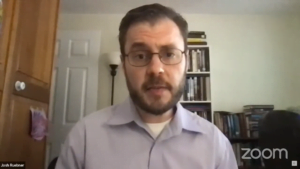 Ruebner argued that the report is not likely at all to change Biden’s administration approach toward the Israeli-Palestinian issue However, it can create a paradigm shift in the US-public discourse and especially at the US congress.
Ruebner argued that the report is not likely at all to change Biden’s administration approach toward the Israeli-Palestinian issue However, it can create a paradigm shift in the US-public discourse and especially at the US congress.
It can do this in three ways according to Ruebner. First, it may create a public pressure to stop US aiding of what forms an illegal occupation. Second, rounding the issue in settler-colonialism reframes the issue as a continuation of a process Israel started in 1948 and start recalling the Nakbah and what happened then rather than what happened in 1967 which is not so dramatic in the US mind. Third, the right to self-determination was completely off from the US minds and policies for decades. Hence, this report helps reframing the issue as a contest between the oppressed and the oppressors rather than two equal states which fuels the moral dimension of the issue among the US public.
The global civil society has an important role toward enforcing the realization of the right to self-determination for Palestinians
Being asked to discuss the impact the global civil society could play to enforce the observations and recommendations provided by the UN SR in her report, the special advisor to the Norwegian Refugee Council, Itay Epshtain, stated that the global civil society has to work collectively with a sense of urgency toward enforcing the realization of the right to self-determination as a cornerstone of any political solution.
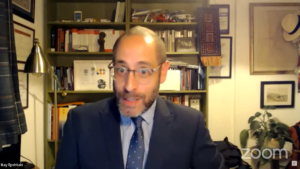 Focusing on three element, Epshtain first argued that the global civil society still has a vital mission in protecting the Palestinians whose vulnerability is only increasing by time through, for instance, providing humanitarian relief, legal support, advocacy and documentation of Israeli occupation violations.
Focusing on three element, Epshtain first argued that the global civil society still has a vital mission in protecting the Palestinians whose vulnerability is only increasing by time through, for instance, providing humanitarian relief, legal support, advocacy and documentation of Israeli occupation violations.
“The report refocuses on an inalienable truth in international law which is that the right to self-determination cannot be derogated from under any circumstance and it imposes an erga omnes obligations on the international community as a whole” stated Epshtain. This brings us to the second role of the global civil society which is to bring this to the attention of the 3rd parties and put pressure on them to fulfill their obligations in this regard.
Finally, Epshtain believes that it is the time for the International Court of Justice to revisit its 2004 advisory opinion and to correct the legal errors made then. This requires a pressure from the global civil society on their countries and the General Assembly to finally refer the case to the ICJ for a new advisory opinion that shall recognize the non derogatable right of self-determination for Palestinians not subjective to negotiations.
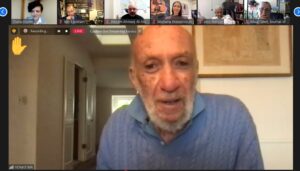 A thorough legal discussion has followed the speaker interventions where international experts provided their insights and questions to the UN Special Rapporteur, including an intervention from the Former UN Special Rapporteur, Professor Richard Falk, who talked about the importance of keeping alive the idea that the Israeli settler-colonial process is yet an incomplete process as Palestinians are still there and still resisting the completion of this settler-colonial project from being fully implemented.
A thorough legal discussion has followed the speaker interventions where international experts provided their insights and questions to the UN Special Rapporteur, including an intervention from the Former UN Special Rapporteur, Professor Richard Falk, who talked about the importance of keeping alive the idea that the Israeli settler-colonial process is yet an incomplete process as Palestinians are still there and still resisting the completion of this settler-colonial project from being fully implemented.
This webinar comes within the monthly activities of the Jurists for Palestine Forum, affiliated to the Law for Palestine Organization. The Forum is holding online monthly webinars gathering international experts and researchers, students, jurists and people interested in Palestine from different countries of the world to discuss topics and developments related to international law and Palestine, in addition to effectively networking between jurists interested in Palestine from all over the world.
** To attend the next monthly webinars of Jurists for Palestine Forum, you can register via the following link here
